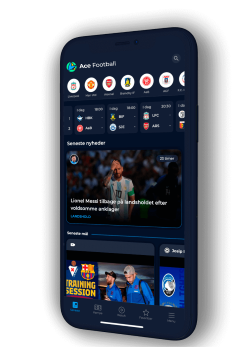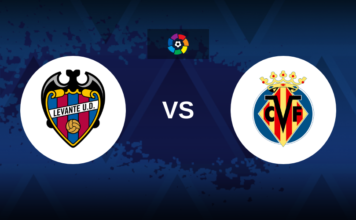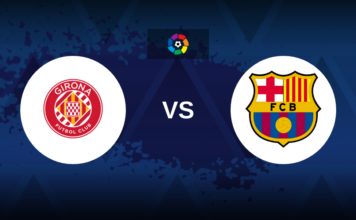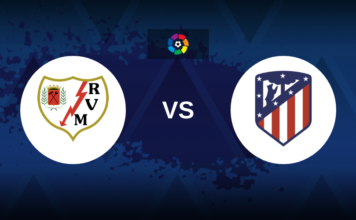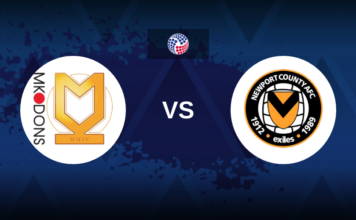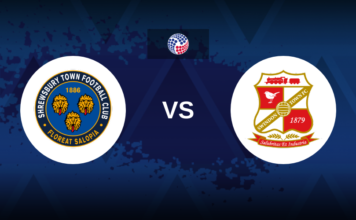In one of the most dominant performances in recent European final history, Paris Saint-Germain PSG produced a tactical showcase to blow away Inter and claim the title in style.
Luis Enrique’s side didn’t just win — they overwhelmed, outclassed, and outthought their opponents in every department. And it all started with a goal that perfectly encapsulated what makes this PSG team so special.
A Goal That Defined a System
PSG’s opening goal was a testament to positional play at its finest. A well-weighted through ball bypassed the Inter backline to find the right winger — now operating on the left — who cut inside and located the right back in acres of space. The net was open, and the ball was calmly tucked away.
None of the players were in their original positions, but all were exactly where they needed to be. It’s the type of movement that’s easy to miss unless you watch closely. From Ousmane Dembélé drifting into midfield to Vitinha covering for an advancing fullback, the number of positional rotations in Enrique’s PSG is staggering — and it’s the main reason no team in Europe has managed to match their tactical sophistication.
Total Control from the First Whistle
PSG’s intent was obvious from kickoff. Within seconds, they played the ball into Inter’s half, won a throw-in, and immediately applied pressure. For much of the first half, Inter sat in a deep 5-3-2, with Lautaro Martínez and Marcus Thuram tasked with closing down PSG’s center-backs and midfielders screening Dembélé.
In theory, it’s a solid defensive setup. In practice, it was no match for PSG’s fluidity.
Luis Enrique’s men rarely resemble the 4-3-3 shape they start with. In possession, they often build with a back three, sometimes with left-back Nuno Mendes involved, but more frequently with Vitinha dropping deep to form a new line. This subtle movement creates gaps in central midfield and wide areas that are immediately exploited.
Mendes, for instance, can push up into the wing or half-space, supporting Khvicha Kvaratskhelia and instantly giving PSG a numerical advantage on both flanks. The result? Inter’s wing-backs were consistently overrun, and PSG’s side-to-side circulation repeatedly opened gaps behind the defense.
The First 20 Minutes: A Blueprint of Dominance
In just the first 10 minutes, Inter’s wide center-backs were dragged out of position to cover flanks. This disorganized the backline and allowed PSG to attack the spaces left behind. Once Inter were forced to defend deep, the pressure was relentless. A quick combination between Fabian Ruiz and Vitinha unlocked space in midfield, while Dembélé’s movement drew attention away from runners like Achraf Hakimi — who found himself free to score.
The goal was a microcosm of everything PSG do well — pressing high, rotating constantly, and punishing positional weaknesses with ruthless precision.
Dembélé: The Relentless Engine of the Press
While Dembélé might not have registered many statistical high regains, his relentless pressing was central to PSG’s dominance. Unlike Barcelona in the semi-final — whose high line allowed Inter to play through them — PSG pressed with ferocity, especially against goalkeeper Yann Sommer.
Each time Sommer looked for a pass, Dembélé was already charging him down, forcing either rushed long balls or risky passes into congested midfield zones. With no easy out-ball, Inter were stifled at the source.
Even when Lautaro and Thuram won aerial duels, PSG’s backline quickly recovered to nullify follow-up attacks. The only threat Inter posed came from set pieces, but even those were handled efficiently.
The Rest of the Goals: A Story of Structure and Transitions
The second goal arrived after Barella attempted to win a corner — PSG kept the ball in play, and within seconds, it was in Inter’s net. Kvaratskhelia played in Dembélé, who switched play to Dušan Vlahović at the back post. His shot deflected in off Federico Dimarco, who never got set to deal with it properly.
The third goal further illustrated PSG’s ability to manipulate defensive structures. With Inter pressing higher, Dembélé dragged a center-back out of position and found Vitinha with a cheeky backheel. The midfielder then slid it wide to Dušan Vlahović for an emphatic finish. It looked like a counterattack, but it was in fact a structured move from deep.
PSG’s fourth goal — finished by Kvaratskhelia — did come in transition, and the fifth by Warren Zaïre-Emery was another masterfully worked build-up that split Inter’s lines.
A Triumph of Tactics and Mentality
What made this win especially remarkable wasn’t just the strategy, but the mindset. PSG had time to prepare after wrapping up Ligue 1 early, while Inter were still locked in a tight Serie A title race. But this wasn’t just about freshness — it was about unity.
Luis Enrique has forged a cohesive unit of young stars who are intelligent, selfless, and tactically disciplined. From pressing to build-up play, PSG operated as one machine with interchangeable parts — and Inter had no answer.
This wasn’t just a victory. It was a message.


